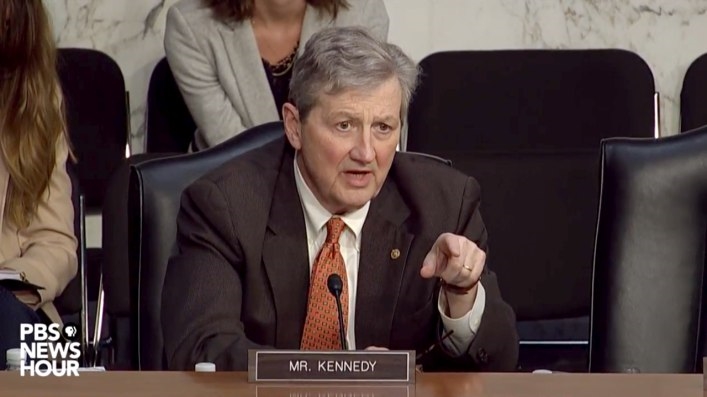Facebook evades questions from Senator Kennedy about its ability to produce personal profiles on users
October 31, 2017
Today, representatives from Facebook, Google, and Twitter testified before the Senate Judiciary Committee’s Crime and Terrorism Subcommittee. The conversation largely revolved around Russian attempts at spreading misinformation during the U.S. election, but a few politicians tried to get under the hood of these platforms to understand what really happened.
Senator John Kennedy (R-LA) may have asked the most pressing questions of the day, hammering Facebook general counsel Colin Stretch. He wanted to know one simple thing: Can Facebook target users on an emotional–or even individual–level. Stretch was under oath and Kennedy wanted some straight answers. “That’s your business model,” he bluntly said. “You collect data and lease it out to companies who use that data to sell people products, services, and candidates.”
Kennedy reminded the Facebook witness he was under oath. His statements on targeting and surveillance smelled like perjury.
— Matt Stoller (@matthewstoller) October 31, 2017
Kennedy went on to ask what can Facebook do with this data. For instance, said Kennedy, if Mark Zuckerberg went up to someone at the company and asked for a personal profile on one of its users, could the company provide that? Stretch answered: “Absolutely not–we have limitations in place on our ability [to access this information].”
“I’m not asking about your rules,” Kennedy said. “I’m saying that you have the ability to do that.”
Stretch shot back: “The answer is no.”
The Abbott and Costello-like back and forth went on for a bit: Kennedy asked whether it was possible for Facebook to access this sort of user data and Stretch responded by saying Facebook doesn’t allow for that sort of action, which evades the entire point.
Later on, Kennedy asked this again, but from a different angle. The senator pointed to a report from The Australian (paywall) where an advertiser received a memo from Facebook that showed how it can microtarget millions of emotionally vulnerable teens. “Was that reporting wrong?” asked Kennedy.
“That reporting relied on an internal document that was overstated,” said Stretch. “In the wake of that reporting we have put in place safeguards to prevent any ad targeting on that basis, ” he added.
While no real conclusion was made, these exchanges highlighted real pressure exerted on Facebook. The company insisted that it cannot and will not provide profiles–of groups or individuals–as a way to help clients. All the same, we never got a straight answer about whether or not it was possible.
If we take Stretch at his word (and he was under oath), what Kennedy suggested is impossible. When asked if he had the ability to target people in this very specific manner Stretch said, “we have architected the system so that I may not.”
Fast Company , Read Full Story
(18)













